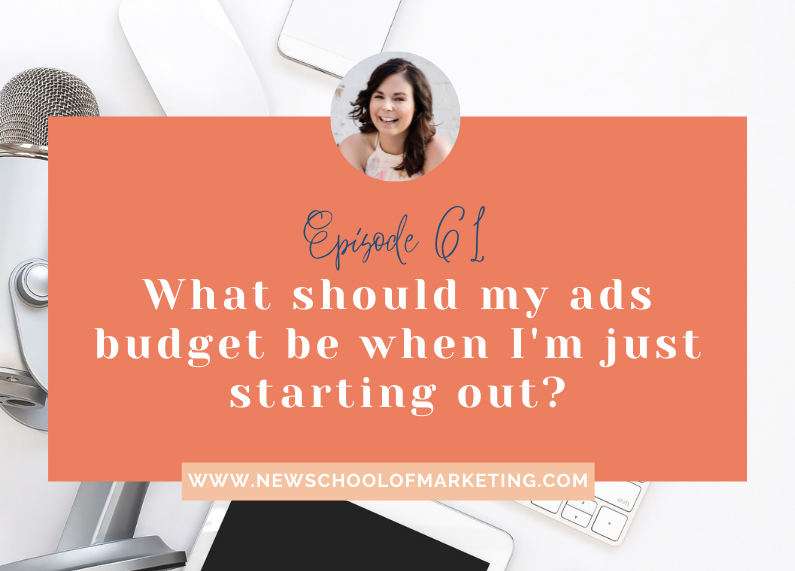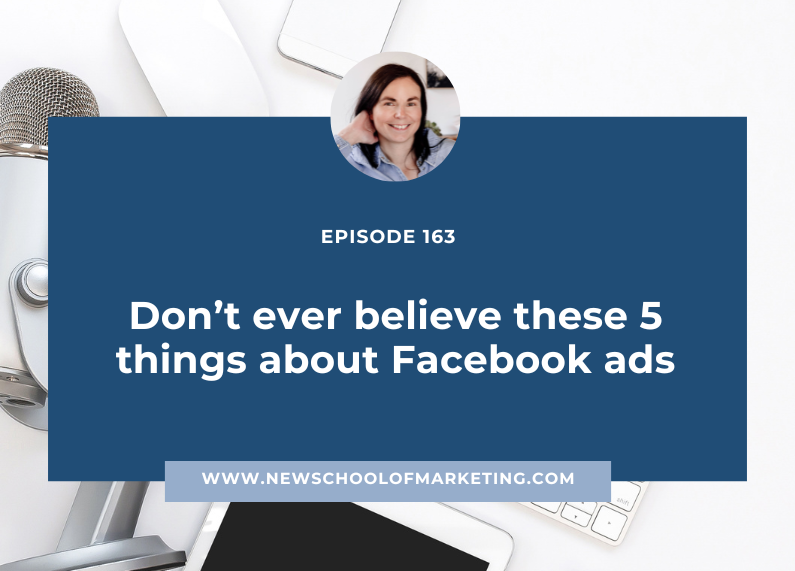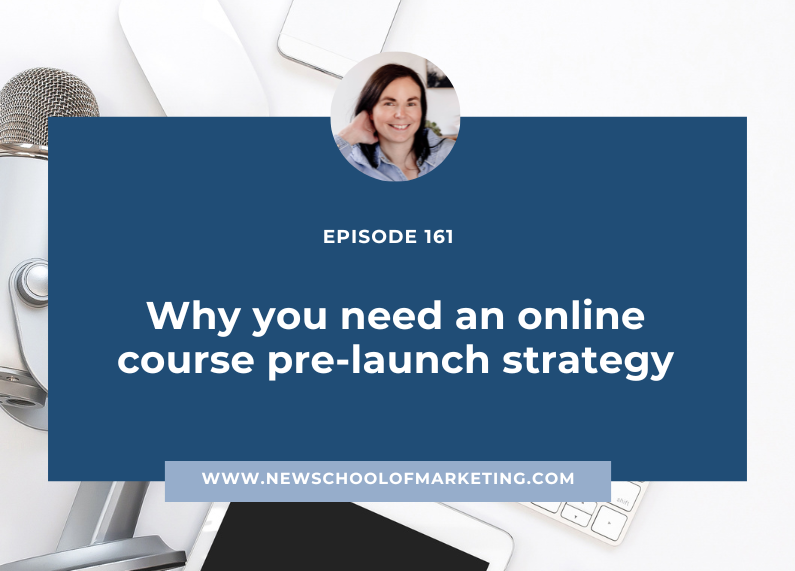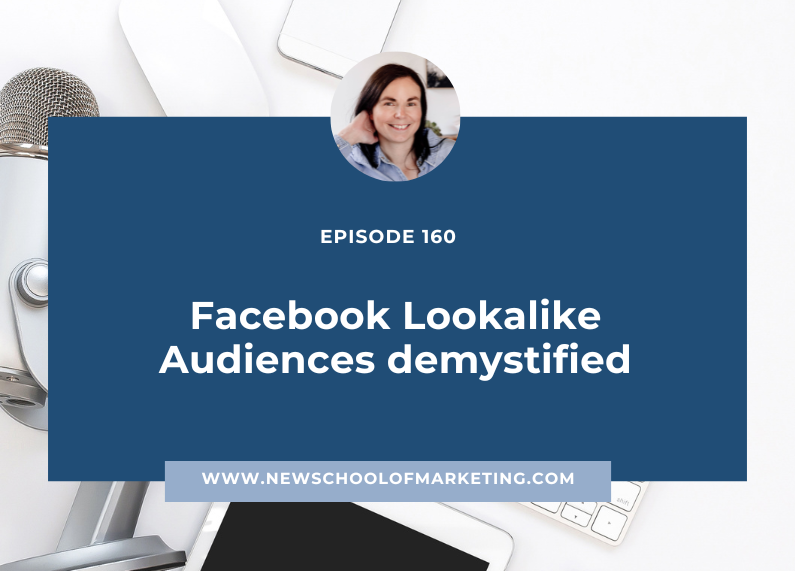
I often get asked what to spend on Facebook ads and to be honest, there is no right or wrong answer.
Each of Facebook’s objectives will come with its own costs and results, which will be your indication of spend after testing some ads.
It often also depends on the strategy and flow of your ads. For example, have you warmed up and nurtured your audience before showing them a sales ad? This approach often lowers your cost per sale and thus affects your budget.
While there are benchmarks, it’s really hard to share those because each industry is different. So instead I’ll explain a bit more about some of the features and what they mean so you can analyse your own costs and determine your budget.
————
Join Facebook Ads for Online Stores
http://biancamckenzie.com/fbe
Download free resources
https://biancamckenzie.com/free
Connect with me
Website: www.newschoolofmarketing.com
Facebook: @newschoolofmarketing
Facebook group: @newschoolofmarketing
Instagram: @bianca_mckenzie
Love the New School of Marketing Podcast?
Let’s be honest and upfront, because you know that’s what I’m all about. Podcast reviews are super important to iTunes and the more reviews we receive the more likely iTunes will reward us with better reach.
I want to reach more course creators, store owners and awesome business builders that can add extreme value to our awesome insiders. I already love that you’re here and ready to rock your business, but I’d be extremely grateful if you would review me on iTunes and SUBSCRIBE!
Can’t wait to teach you everything I know about online marketing!
Transcript
Welcome to the podcast, I’m so grateful for everyone who tunes in.
As I’m preparing for this podcast episode, it’s grey day and the plumbers are in to fix our toilet and septic issue. For the past day I’ve had to use our camping bucket. Quite amusing, but it is what it is.
So let’s focus on a more exciting and positive topic. Your Facebook ads budget.
I often get asked what to spend on Facebook ads and to be honest, there is no right or wrong answer.
Each of Facebook’s objectives will come with its own costs and results, which will be your indication of spend after testing some ads.
It often also depends on the strategy and flow of your ads. For example, have you warmed up and nurtured your audience before showing them a sales ad? This approach often lowers your cost per sale and thus affects your budget.
While there are benchmarks, it’s really hard to share those because each industry is different. So instead I’ll explain a bit more about some of the features and what they mean so you can analyse your own costs and determine your budget.
Ads that drive traffic are measured in CPM. Cost per thousand impressions (CPM) is a marketing term used for the price of 1,000 advertisement impressions on one webpage. I often see a CPM anywhere between $20 and $30 to non-fans with my ads, but it can vary. Five years ago those CPMs were single digit numbers, so it shows that the competition for ad space has gone up.
Your CPM is going to depend on the size of your audience and how much they’ve been nurtured. Like I said, each industry is different too so my results are no indication for yours.
The best way to find out what your CPM is would be to run ads for a few months and test what works to find out what your benchmarks are.
The other numbers I look at are cost per click, so how much does it cost for someone to click on the ad and I look at the CTR (Click-through-rate) at the same time. I want my CTR to be above 1% and my cost per click as low as possible. If my CTR is lower than 1% it means that people aren’t really interested in the ad and not compelled to click.
So in that case I either have the wrong audience or my creative isn’t compelling enough and I need to improve it.
But before we look at any of this, we need to go back to the beginning.
What do we hope to achieve with our ads?
What is the objective of our campaign?
Like I said, there is no magic budget but knowing what you’re trying to achieve plus knowing some of the numbers in your business will help you work on a budget that’s realistic.
The first number that would help you determine your budget is your CPA, your cost per acquisition.
If you know already how much it costs you to bring in a new client or new shopper, you’ll be able to calculate your budget based on the number of sales you want to make vs the cost per acquisition.
I know most people don’t actually know this number, so let’s look at some other ways to determine your budget.
When I work with people I generally ask them for some statistics to determine whether ads are the right move for them right now.
The first number I want to know is your conversion rate.
If you sent 1000 people to your website, how many have purchased?
The average conversion rate for e-commerce websites is between 1-4%, the average conversion for online courses is between 1-3%.
A course funnel is often different though and the time it takes to convert is often longer.
For online stores, if your product is under $250 you often see conversions reasonably fast but for anything higher it might take longer and more time to nurture your audience.
So when I speak to e-commerce store owners I really want to see a conversion rate of 2% and ideally an average order value of $100. When the numbers are lower, it’s quite tricky to outsource your ads and make a return on investment.
So your first number to look at is your conversion rate. You really want to see it at 2% or higher.
Of course you need enough traffic to even reach this number, so if you’re not getting to 2% conversion – also look at your traffic before you decide that you have a conversion problem.
If you do have enough traffic but your conversion isn’t at 2% or higher, I’d go through your entire website to see if there are sticking points. Another option is to work with an e-commerce coach to improve your conversion.
So your first number to know is your conversion rate.
The second number I ask for is your income goal.
Knowing how much you’d like to make is important too, and it’s directly related to your ads budget. With a budget that’s too low, you’re always going to be disappointed and probably say that ads don’t work for you.
So know your income goal.
I also ask for any other numbers that you might know. For example, if you’ve already done some advertising I’d like to know what your cost per click was and what type of results you’ve received from ads.
If you don’t know these numbers I generally use average numbers to calculate your budget.
Like I said, there is no magic budget but knowing your numbers can really help you calculate what you need to spend to make your desired amount of money.
For example, if your goal is to make $5000 and your average revenue per sale is $100 – you need to make 50 sales to make your income goal.
I use a spreadsheet to calculate your budget and inside this spreadsheet I look at your actual conversion rate, your link clicks required, your CTR (link click through rate), the estimated cost per click (or actual if we have this number), and the required reach to hit your targets.
My spreadsheet will then tell me how much money you need to invest to make your goal, plus it will tell you your cost per acquisition or cost per sale as well as your return on ad spend.
I share this spreadsheet with my students inside of my Facebook ads for online stores program.
Sometimes the numbers aren’t positive and we need to look at how we can increase conversions or increase the average order value.
It’s a fun exercise to do and I love that it provides clarity upfront so you know what you’re expecting and not just blindly throwing money at Facebook ads and then be disappointed.
So, to answer the question ‘what should my ads budget be when I’m just starting out?’
There is no magic number.
You need to know some other numbers in your business before you decide on a budget.
If you want access to my spreadsheet, as well as all of the training videos and monthly Q&A calls with me… I invite you to join my online program Facebook ads for online stores.
I’ll include all of the links in the show notes and can’t wait to see you inside.








0 Comments